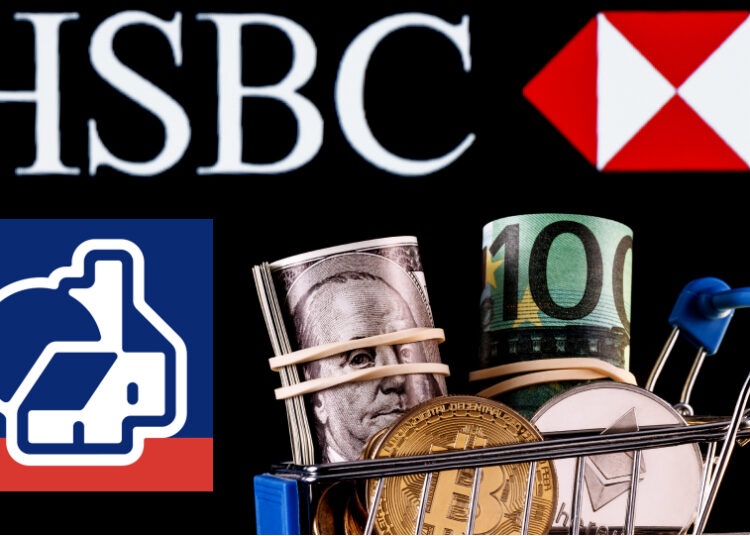The HSBC bank and the Nationwide Building Society have imposed more restrictions on customer use of credit cards to buy crypto.
“…and then they fight you”
UK crypto hub?
Financial institutions are coming to the realisation that crypto is disrupting their business. However, if you can stop customer purchases of crypto, or at least limit them, then it buys time until regulations can be brought in to stifle and smother crypto innovation.
But surely the UK is pro crypto given that it wants to be an internationally recognised hub for crypto? Really? This is like the Vatican saying that it wants to be recognised for organising raves!
UK financial institutions at least, are not in the business of stepping aside while crypto takes their place and kicks out all the middle men because they are inefficient and unnecessary.
Nationwide and HSBC announce restrictions
The Nationwide announced on Wednesday that it has applied a limit of £5,000 spending a day on crypto for holders of an adult current account, while those who have a FlexOne account will only be able to spend £100 on cryptocurrencies.
Top crypto exchange Binance has been singled out for special treatment, and Nationwide said in its statement that payments to Binance will be declined.
The reason for these actions have been given as the guidance put out to banks and financial institutions by the Financial Conduct Authority (FCA), and that the Nationwide wants “to help protect you”.
HSBC has gone one step further and has outright banned the purchase of cryptocurrencies, and stated that this has been the case since February 23.
HSBC fraud and money laundering
HSBC is one bank that really doesn’t hold the moral high ground, given that the FinCEN Files, reported by the BBC, accused HSBC of “allowing fraudsters to transfer millions of dollars around the world” in spite of having knowledge of it. This took place in 2013 and 2014, and was shortly after HSBC was fined $1.9bn (£1.4bn) in the US for money laundering.
FSCS scheme will save you
Ordinary citizens are forced to hold bank accounts in order to be able to carry out their business, yet the chances of bank collapses are increasing all the time.
If this is ever mentioned in the mainstream media, the answer is always that if it ever did happen, the Financial Services Compensation Scheme (FSCS) would have you covered to the tune of up to £85,000.
What is never mentioned though is that if one bank collapses, the likelihood of others also collapsing is very high indeed. The FSCS would not be able to cover this eventuality. It might also be asked, Who does the FSCS bank with?
Banks should serve the customer
Banks are surely there to provide a service to customers. The old way of banking would be to hold customer funds safely, and earn fees for offering various financial services.
However, it appears that this has now changed, and the bank, not content with being the legal holder of ‘your’ money, also wants to decide exactly how you spend ‘your’ money.
When talking of banks and financial products, most people stifle a yawn or change the subject as soon as possible. No one is taught at school, college or university how the financial system works, or how currency is spirited out of thin air when a loan is made, or at the whim of central banks.
Banks overreach their power
The vast majority of people have no idea what banks get up to, and if they did, entire populations would march on the banks in order to try and get their currency out, which of course, would be impossible, as banks do not hold more than a tiny percentage of their customers’ funds.
But for banks to decide on your behalf who you can and can’t send money to is an overreach of preposterous lengths. It really is a damning indictment on society that we have allowed banks to have this sort of power.
Thank God for Bitcoin. It may be getting harder to buy it but it is worth any sort of trouble to obtain it. It is completely outside of the traditional financial system and no bank or government can take it away from you. It is time for everyone who wants to retain monetary freedom to educate themselves on what is currently happening.
“…and then you win”
Disclaimer: This article is provided for informational purposes only. It is not offered or intended to be used as legal, tax, investment, financial, or other advice.
Credit: Source link














































